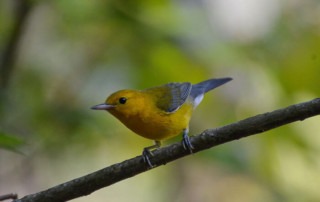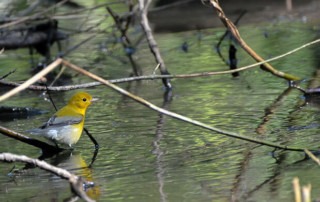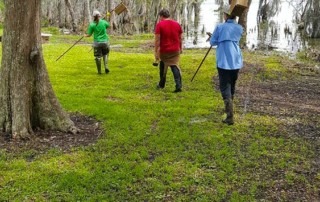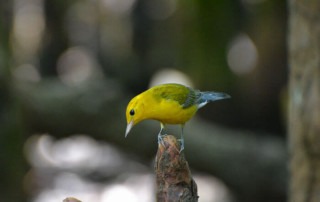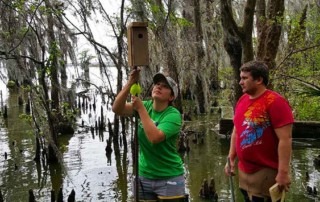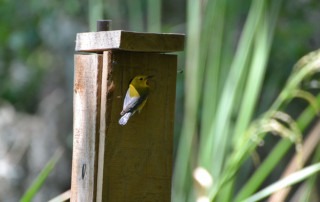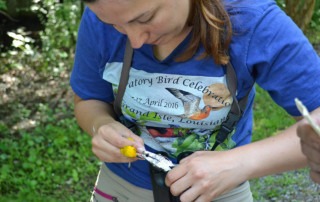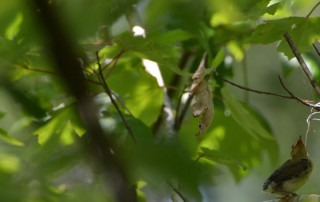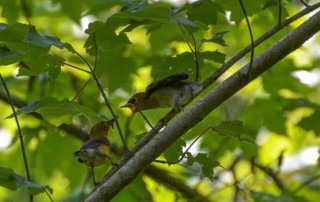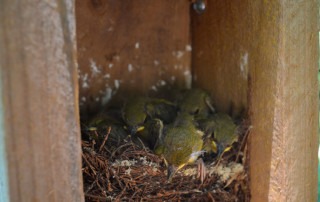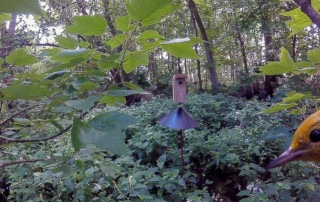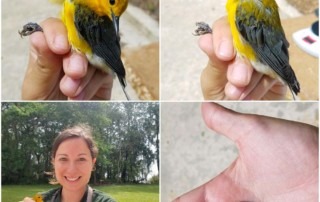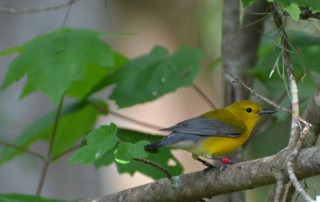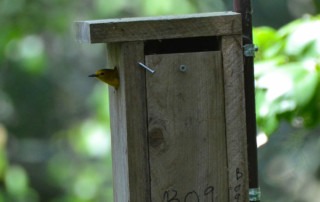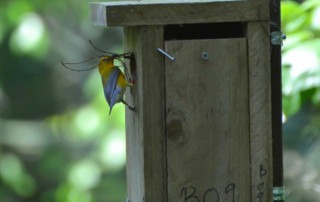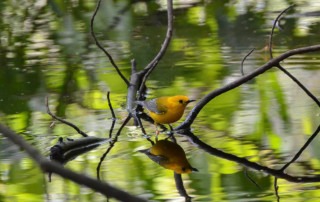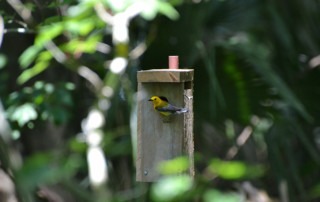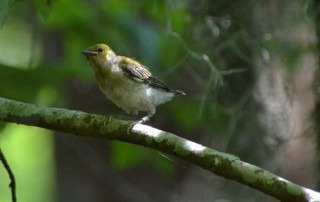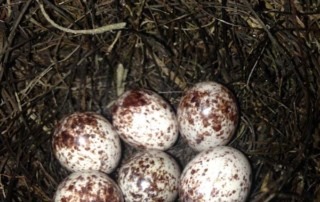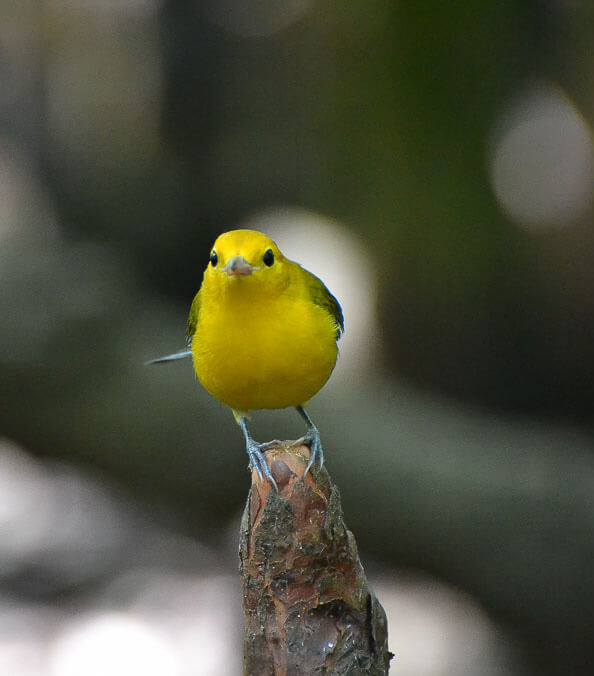
Prothonotary Warblers (Protonotaria citrea) are Neotropical songbirds that have experienced a 40% decrease in overall population over the past 50 years.
Prothonotary Warblers breed in forested wetlands throughout eastern North America and winters in mangrove and coastal scrub habitat throughout Central America and northern South America. It is the only eastern wood warbler to nest in tree cavities and the availability of suitable nesting sites is a critical habitat requirement for nesting success. The destruction of suitable habitat in its breeding, migratory and wintering range is the most critical threat to the species. Additional threats include: pollution and pesticides, changes in hydrology, building and window collisions, Brown-headed Cowbird parasitism, and climate change.
In an effort to implement conservation actions and to collaborate with other conservation organizations primary goals for the species, the Barataria-Terrebonne National Estuary Program (BTNEP) initiated its Prothonotary Warbler project in the spring of 2016. BTNEP conservation actions include the establishment of nest box trails throughout the estuary, data collection to assess breeding demographic rates, community outreach, and to sponsor the use of geolocators to identify connectivity between breeding and wintering grounds.
Click here to learn more about the project.


